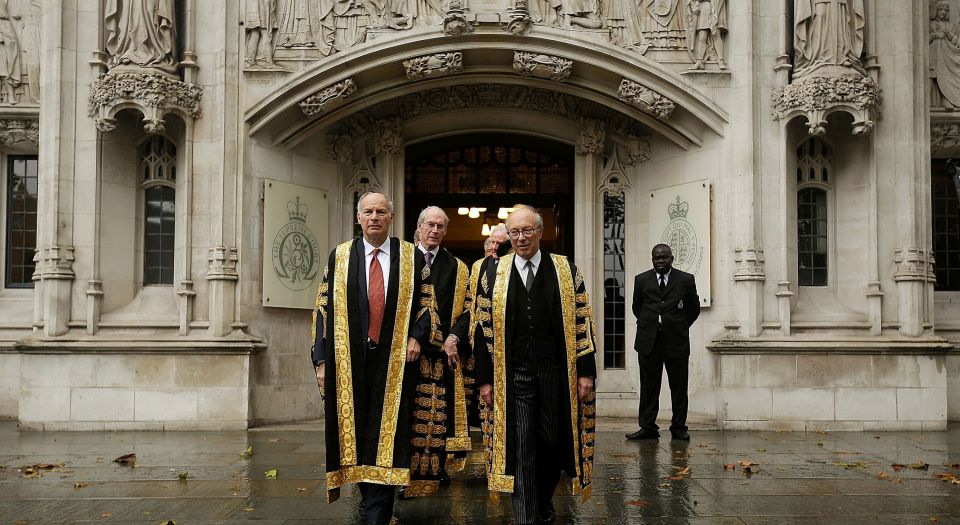Supreme Court judges: saviours of workers?
The tribunal-fees ruling reminds us of the weakness of the labour movement.

The Supreme Court has ruled that the introduction of fees for bringing cases to employment tribunals was unlawful. Employment tribunals resolve cases brought by employees against their employers, and the court ruled that the fees undermined access to justice. It also ruled that, as the fees disproportionately impacted on women, the policy violated the Equalities Act. Ministers indicated they would immediately review the fees system and consider refunding those who had paid fees in the past.
Reading coverage of the decision might lead you to believe that the Supreme Court had been invaded by Marxists. The judgement was a ‘victory for the workers’, said one commentator. A representative of Unison, the trade union that brought the case, said that ‘unscrupulous employers would no longer have the upper hand’. Another commentator called it the ‘most significant judicial intervention in the history of British employment law’.
Now, there was a lot to dislike about the fees system. It was introduced by the lord chancellor in 2013, in order to reduce vexatious claims, encourage early resolutions and transfer the costs of hearings from the taxpayer to the complainants. But the court ruled that the policy had done little to reduce the number of unsuccessful cases being brought, and had not resulted in substantially more cases being settled. Instead, it had led to a ‘dramatic and persistent’ fall in the number of claims being brought, suggesting that people were being ‘put off’ seeking justice.
One of the reasons the judgement was so celebrated was its seeming appeal to the constitutional right of access to justice. The judgement said that ‘unimpeded access’ to employment tribunals was not just good for the people using them, but was central to upholding the rule of law. It’s a longstanding principle, dating back to Magna Carta, that citizens should have access to the courts that rule over them.
But this case wasn’t just about this ancient principle. The fees system was not deemed unlawful in and of itself. Indeed, the Supreme Court noted that fees were a ‘reasonable way to bring resources to the justice system’, and a reasonable way of deterring bad claims. It was unlawful because the scheme had been passed without a vote in parliament, under the delegated authority of the lord chancellor.
Before we declare this a victory for workers, we should remember that workers were completely absent from the process. As has been noted previously on spiked, trade-union membership is at an all-time low. Indeed, Unison unsuccessfully lobbied the coalition government to prevent the introduction of fees. Because of their depleted influence, trade unions struggle to build proper political campaigns. And so they fight political battles in the courtroom, between lawyers and judges. It is a symptom of the weakness of the labour movement.
Yes, the fees system was bad. But it is concerning that the judiciary is being invited to adjudicate over political questions. While it may be legitimate to strike down a law that was improperly imposed, the case itself also focused on the impact, rather than legality, of the policy. As such, Unison did not have to introduce any evidence that justice had been denied. Instead, it simply had to prove that, in practice, the policy had the effect of doing so.
The court, therefore, used a constitutional principle to remove ‘practical barriers’ to people litigating. In that sense, it was assessing the impact of a political policy. While the case was posed around a legal question, of whether the lord chancellor had exceeded her delegated authority, the judges were also making an altogether different judgement, about the effect, rather than the legality, of the policy. This is an unhealthy mixture of politics and law.
The tribunal-fees ruling wasn’t really about democratic accountability. In fact, it revealed the modern labour movement’s tendency to use the courts to settle political disagreements. Maybe getting rid of the fees system was a good idea, but the way in which it was achieved is bad for politics, and underlines the historic weakness of the organisations celebrating it as a great victory.
Luke Gittos is law editor at spiked and author of Why Rape Culture is a Dangerous Myth: From Steubenville to Ched Evans. (Buy this book from Amazon(UK).)
Picture by: Getty
To enquire about republishing spiked’s content, a right to reply or to request a correction, please contact the managing editor, Viv Regan.









Comments
Want to join the conversation?
Only spiked supporters and patrons, who donate regularly to us, can comment on our articles.